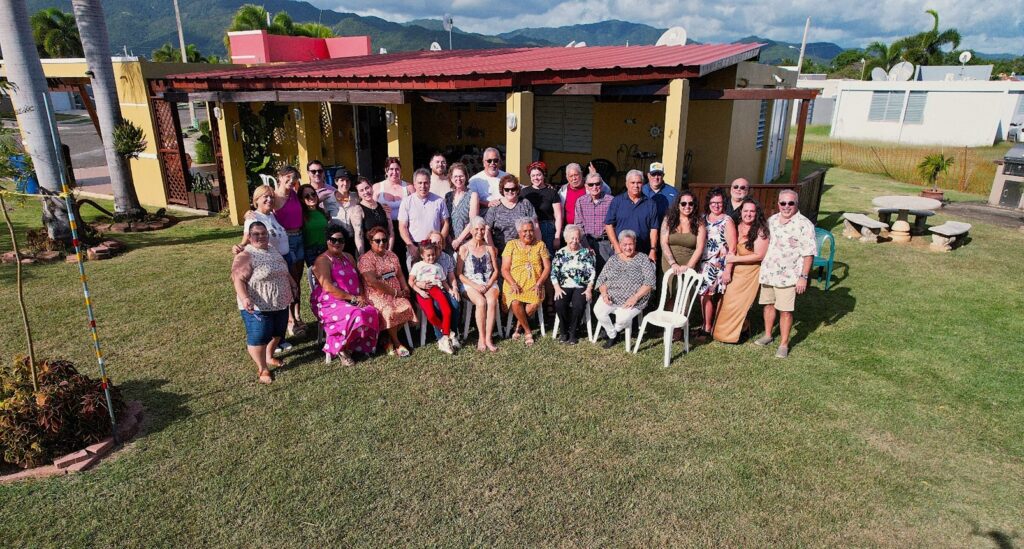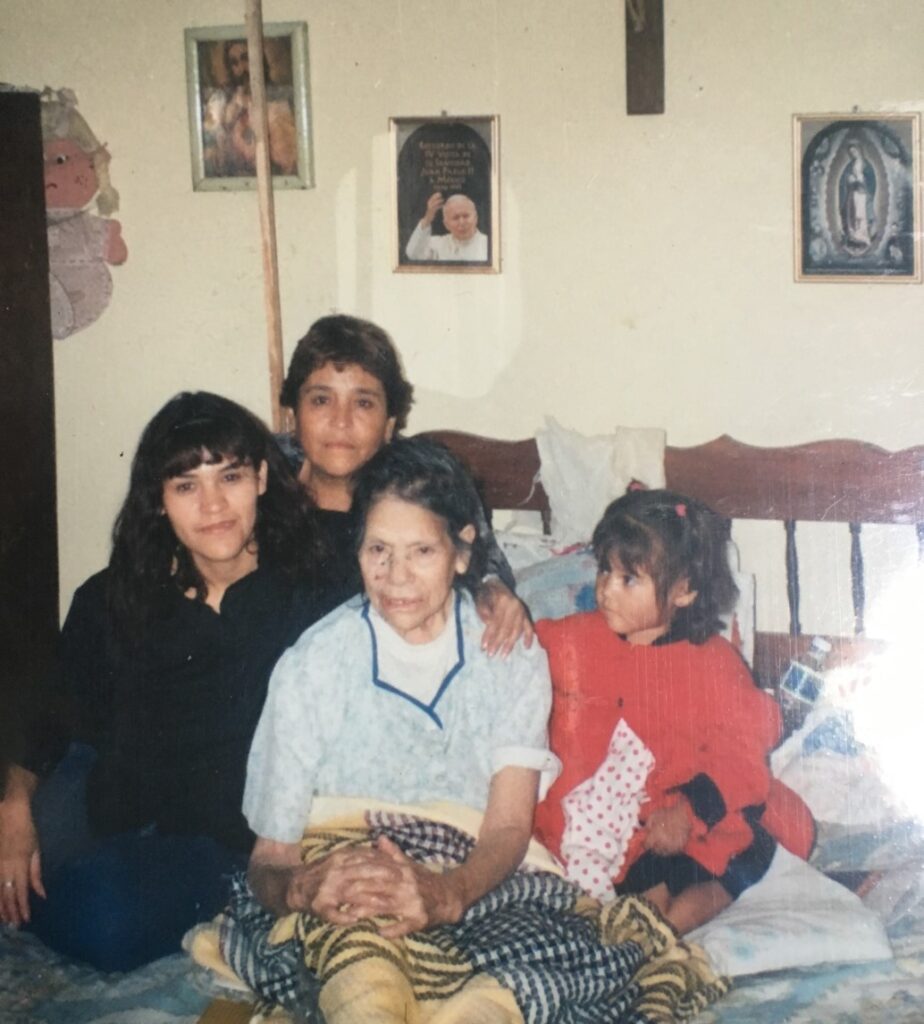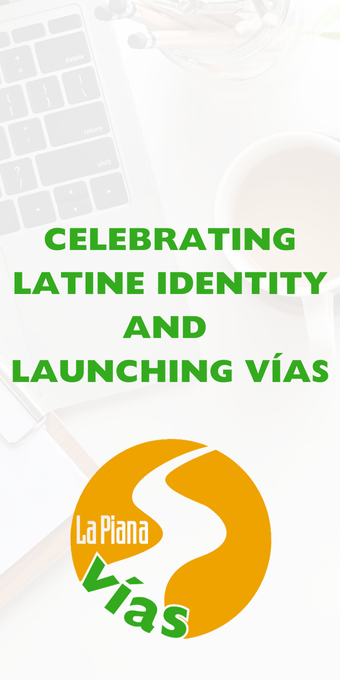Celebrating Latine Identity and Launching Vías
You’re Invited: Curated Conversation
The Implications of Project 2025 for Latine-serving Nonprofits
Date: Wednesday, October 9, 2024 10:30 AM-12:00 PM PST
Join us on Wednesday, October 9, for an online discussion on the challenges for Latine communities and nonprofits in the face of Project 2025 and how we can take proactive action to protect our communities under a potential Trump presidency.
What to Expect:
Project 2025 is a threatening plan that aims to adversely reshape the US economy and society in 2025 under a Trump administration. It has been met with criticism and resistance from various groups, especially Latine communities who fear that it will undermine our rights, culture, and well-being.
In this Curated Conversation, held by La Piana’s Latine-centered consulting group, Vías, we will explore the implications of Project 2025 for Latine-serving nonprofits and the people they serve. We will also brainstorm the role of nonprofits in anticipating and counteracting the potential negative consequences of Project 2025. This event is open to anyone who is interested in learning more about Project 2025 and its impact on Latino communities and nonprofits.
If you’re interested in attending, please fill out this form, and we will send you a calendar invite for the conversation.

¡Hola! September 15th marks the beginning of Hispanic Heritage Month, a time to celebrate the rich history, culture, and contributions of Hispanic and Latine communities in the United States. However, terms like “Hispanic” and “Latine” have different meanings, and it’s important to acknowledge those distinctions as we enter this month of celebration. While “Hispanic” refers to people who descend from a Spanish-speaking country or territory, “Latine” encompasses those from regions in the Americas where Romance languages (derived from Latin) are spoken.[1]
At Vías, a new initiative from La Piana Consulting, we recognize the complexities of these terms and embrace the term “Latine” for its inclusivity. Latine is a gender-neutral term used to describe people of Latin American descent, who might also identify as Latinx, Latino, Latina, and Hispanic.
This blog post is a celebration of Latine identity in all its richness and complexity. You’ll hear personal reflections from our Vías team on what their Latine identity means to them. Through these stories, we hope to foster a deeper understanding of the Latine experience.
Personal Reflections
Latine, to me, represents a fusion of my heritage and identity. Growing up in rural New York without much Latine community, my Latine identity was highly personal, and limited to my family in Puerto Rico and New York. I saw firsthand the racism and xenophobia of my community, unconsciously informing how I showed up in the world. I didn’t have much exposure to cultural pride or representation beyond my family.
As I grew up, studied Latin American and Caribbean studies in college, and moved to Los Angeles, my exposure and newfound connections with the Latine community broadened my understanding of my ethnicity to that of a proud political identity. I found power in sharing this identity with other young organizers, academics, and dreamers.
Latine is a term that not only embraces our cultural traditions but also honors the diversity within our community, including queer identities like mine. It’s a word that feels inclusive and affirming, allowing me to proudly stand in my full identity while feeling deeply connected to the wider Latine experience as we disrupt power structures around the world. Being able to share this collective identity is a privilege and reminder of the depth and breadth of our global community.

4 generations of the Monagas/Valentin family in Arroyo, Puerto Rico, 2023
Being Latine reflects the evolution of my Salvadoran – American upbringing, which today allows me to navigate two worlds: the U.S. Latine and the broader Latin American culture. Growing up, this wasn’t always the case, as I was always trying to find my place in world since I was neither from here nor there. As a U.S.-born Salvadoran, I was often one of the few like me in school and the prevailing expectation was assimilation. When I moved to El Salvador in my pre-teens, I was able to fully embrace my culture and language, but this came with the stigma of being the “gringo,” which many of my friends reminded me of. Upon returning to the U.S., I once again had to figure out where I fit in and who I was as a Latine individual. It was through friendships, learning about my heritage, and fully embracing my bicultural and bilingual identity that I found my place. This journey deepened my love for both of my worlds and gave me a profound understanding of what makes the Latine experience unique. Today, I can seamlessly engage in conversations about both football (NFL) and fútbol, feel at ease in both boardrooms and mercados, and, most importantly, I can proudly declare that I am Salvadoran-American and Latine. This Latine evolution has turned me into a cultural chameleon, someone who can skillfully adapt to both worlds and thrive within them.
Being Latine is more than just a cultural label for me; it’s a fundamental part of my identity. It’s the music I dance to, the food I crave, and the traditions I cherish. But beyond these tangible elements, my Latine identity has provided me with a deep sense of belonging and resilience.
Born in Mexico and raised in the United States, I often felt like an outsider navigating a new culture. Identifying as Latina provides a sense of community and support, connecting me with others who shared similar experiences. The shared history of immigration, discrimination, and resilience among Latine communities has given me the courage to overcome challenges and pursue my dreams.
While the terms “Hispanic” and “Latine” have the tendency to homogenize, they have also played a crucial role in uniting diverse communities. For me, identifying as Latina has empowered me to find my place in the world and connect with others who understand my unique experiences.
I recognize that this privilege is not shared by all Latine individuals, and that the experiences of those who may not identify with these terms are equally valid. The reality is that Latine identity is complex and multifaceted. Rather than shying away from these complexities, we can use them as an opportunity to embrace the rich diversity within our community.

Mujeres de nuestra familia. Cuatro generacions. De izquierda a derecha: Mamá, abuela, bisabuela y yo. Women of our family. Four generations. From left to right: Mom, grandma, great grandma and me.
A few years ago, I was with a group of cousins and thought it would be interesting to ask them what words they use to describe their ethnic identity. To my surprise, as we went around the room, almost everyone used a different word to describe themselves: Hispanic, Mexican-American, Mexican, Latino, Latine. Chicana — there was a lot of variation! Words are important and identities can be loaded. I feel like I’ve identified with different terms and labels throughout my years, and the terms continue to evolve based on how I am feeling, my environment, and social shifts.
Speaking in a gendered language, like Spanish, makes it difficult to be inclusive of gender diversity. When I was living in Chile, I was very proud that the university where I taught made the significant decision to recognize the use of the gender-inclusive -e ending in academic papers (i.e., students can use the -e ending rather than -o/-a to make words gender-neutral). To me, it was wonderful for the university to recognize that it’s “correct” and “acceptable” to break away from language norms in favor of being inclusive of women and gender expansive identities. To try to put it in the English context, it’s like instead of saying ‘guys’ and instead of saying ‘guys and gals’ we can just say ‘folks.’ While this may seem like a minor language change to some, the use of -e has deep political, cultural, and inclusion ramifications for questioning the cis, patriarchal language that we use in favor of words that put people and their dignity first. That’s critical to me and who I am. In nonprofit spaces, centering people in the language we use and with our actions is essential, which makes La Piana’s choice of using Latine all the more important to me.
Conclusion:
As we conclude this exploration of Latine identity, we invite you to join us in celebrating the rich tapestry of cultures and experiences that make up the Latine community. Visit Vías: Latine-Centered Consulting at La Piana Consulting to learn more about our work and how we’re supporting the Latine social sector.


Comment section